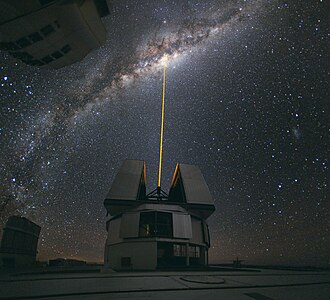
Astronomy
Gematria Values
Astronomical is an adjective derived from the noun astronomy, which refers to the study of celestial objects (such as stars, planets, comets, and galaxies) and phenomena that originate outside the Earth's atmosphere (such as the cosmic background radiation). The term astronomical can describe something related to the science of astronomy or, more colloquially, something extremely large, vast, or immense. In Hebrew, the word is translated as אסטרונומי (astronomi). In Spanish, it is astronómico, in French astronomique, and in German astronomisch. Contextually, the term is often used to convey the scale and grandeur of the universe, highlighting the vast distances and sizes involved in celestial studies. For example, astronomical units (AU) are a standard unit of measurement used in astronomy to express distances within the solar system, with one AU being the average distance between the Earth and the Sun, approximately 149.6 million kilometers.
Wikipedia Information
